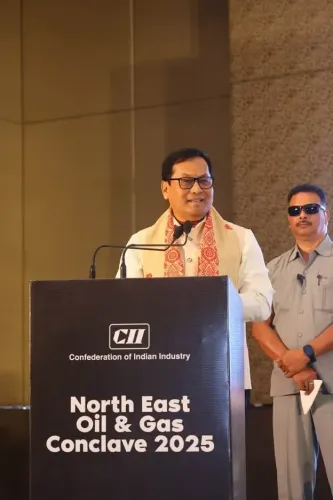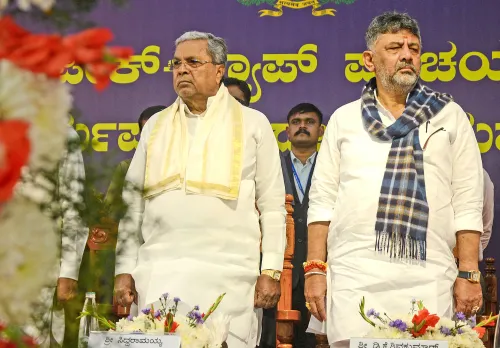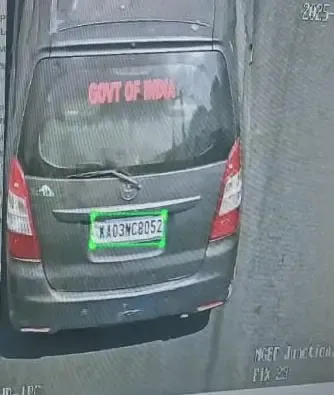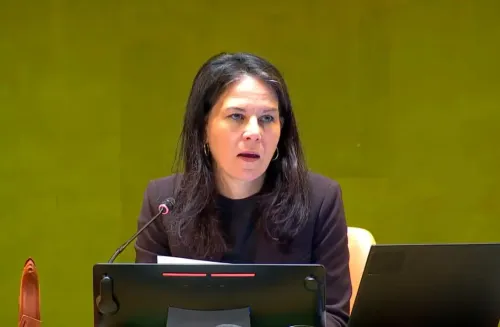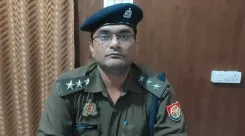Should the UNSC's Veto Powers Be Reformed? India Thinks So!
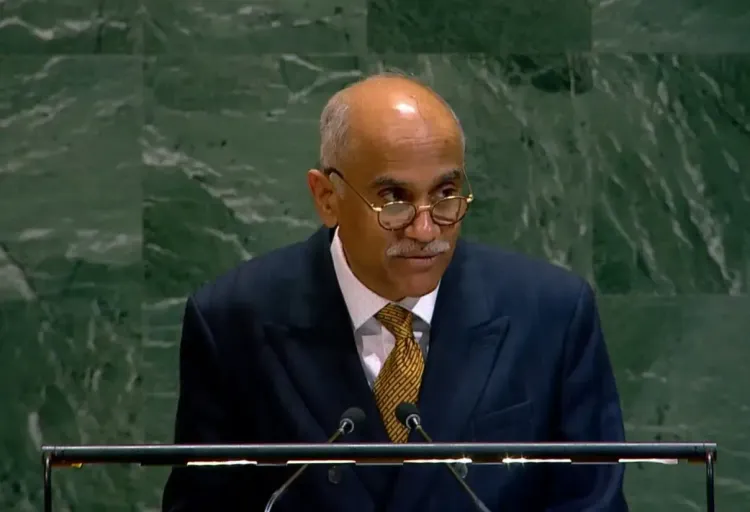
Synopsis
Key Takeaways
- India calls for UNSC reform to address the veto power issue.
- The de facto veto is obstructing progress in reform discussions.
- 17 years of negotiations have been stalled by a small group's tactics.
- Assembly President highlights the need for UN credibility.
- A comprehensive approach to reform is necessary.
United Nations, Nov 21 (NationPress) The monopoly of veto held by the five permanent members of the Security Council must be reformed, but first, the de facto veto that is obstructing this reform process needs to be eliminated, as stated by India.
India’s Permanent Representative, P Harish, emphasized during the Inter-Governmental Negotiations (IGN) that the notion of consensus has effectively turned into a disguised de facto veto.
“This methodology is hindering progress, resulting in no tangible outcomes being achieved within the IGN framework for Security Council reform,” he informed the General Assembly during a session focused on the veto.
For the past 17 years, negotiations aimed at reforming the Council, which includes expanding permanent membership and veto powers, have been stalled by the reluctance of a small group of members who have employed procedural tactics to prevent the establishment of a negotiating text necessary for advancing this process.
Identifying themselves as Uniting for Consensus (UfC), this group, led by Italy and comprising Pakistan, has resisted the acceptance of a negotiating text unless there is a broad agreement on reforms.
Without a negotiating text that outlines the agenda and discussion points, achieving consensus becomes impossible.
Harish pointed out that the resolution initiating the IGN specified that the guiding principle for member states in their efforts towards a solution is to seek the “widest possible political acceptance” rather than mere consensus.
Regarding the veto usage by permanent members, he referenced the 2022 Assembly resolution on this matter, indicating that it has not deterred the permanent members from exercising their veto powers.
He noted that the resolution does not address the veto issue comprehensively.
In a bid to limit veto usage, the resolution mandates that permanent members who exercise their veto must present themselves before the Assembly within ten days to justify their actions.
Since the resolution's adoption, the veto has been utilized on 20 occasions, according to Harish.
The use of vetoes within the Council has prevented the UN from addressing critical issues such as the Ukraine War and the ongoing Gaza conflict until this week.
Assembly President Annalena Baerbock commented, “Inaction or the exercise of the veto within the Council means that real individuals, observing in real-time, may begin to question the credibility and legitimacy of not only the Security Council but the entire UN.”
Harish further asserted that the inadequacy of the Assembly’s initiative to limit veto usage demonstrates that a fragmented approach to Council reforms is ineffective.
“Thus, India reiterates its call for a comprehensive approach to Security Council reforms,” he concluded.

